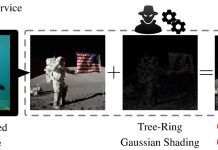
Artificial Intelligence Gives Doctors New Insights
Glioblastoma is a very aggressive type of brain cancer. People who are diagnosed with it usually live only about a year. Each patient’s cancer is different, making it hard for doctors to decide on the best treatment.
But a new tool could change that. Scientists at Stanford Medicine have come up with a computer program that helps doctors understand how bad the cancer is, what kinds of cells make up the tumor, and how well surgery went.
How the Computer Program Works
Doctors have always looked at stained tissue samples under a microscope to figure out what the cancer cells look like and where they are.
But those pictures don’t tell the whole story. A newer method called “spatial transcriptomics” can show the types of cells and their genetic material, but it’s expensive.
So, the Stanford team used artificial intelligence to make this process cheaper and more efficient.
They trained their computer program using expensive spatial transcriptomics data and normal microscope images from more than 20 patients with this type of brain cancer.
For example, the computer learned to spot clusters of cells that signaled a more dangerous form of cancer.
The program was also trained to identify the cells that were lacking oxygen, which is another sign of a severe case.
Knowing all this can help doctors figure out how much of the tumor might still be left in the brain after surgery and decide what treatment to use next.
What’s Next for the Program
The team is excited about the computer program’s potential but says it needs more fine-tuning. The model was tested on images from 410 patients and started to make predictions about the severity of their cancer.
However, it’s not ready for real-world use just yet. For now, the program, called GBM360, is available for researchers to upload images and test how well it can predict the cancer’s behavior.
While the computer program is still being studied, it has the potential to be a game-changer in treating not just brain cancer but maybe even other kinds like breast or lung cancer in the future.
In short, this AI model could be a vital tool in helping doctors understand and treat this challenging type of brain cancer better. And for patients facing such a tough disease, every bit of help counts.
If you care about brain health, please read studies about low choline intake linked to higher dementia risk, and how eating nuts can affect your cognitive ability.
For more information about brain health, please see recent studies that blueberry supplements may prevent cognitive decline, and results showing higher magnesium intake could help benefit brain health.
The study was published in Nature Communications.
Follow us on Twitter for more articles about this topic.
Copyright © 2023 Knowridge Science Report. All rights reserved.



